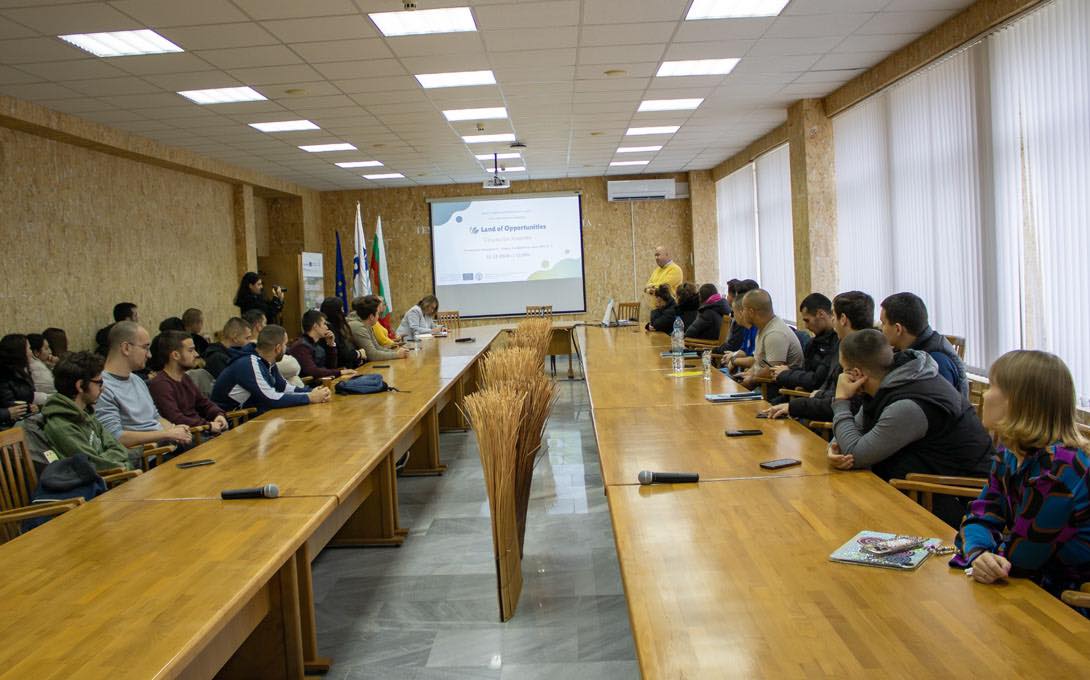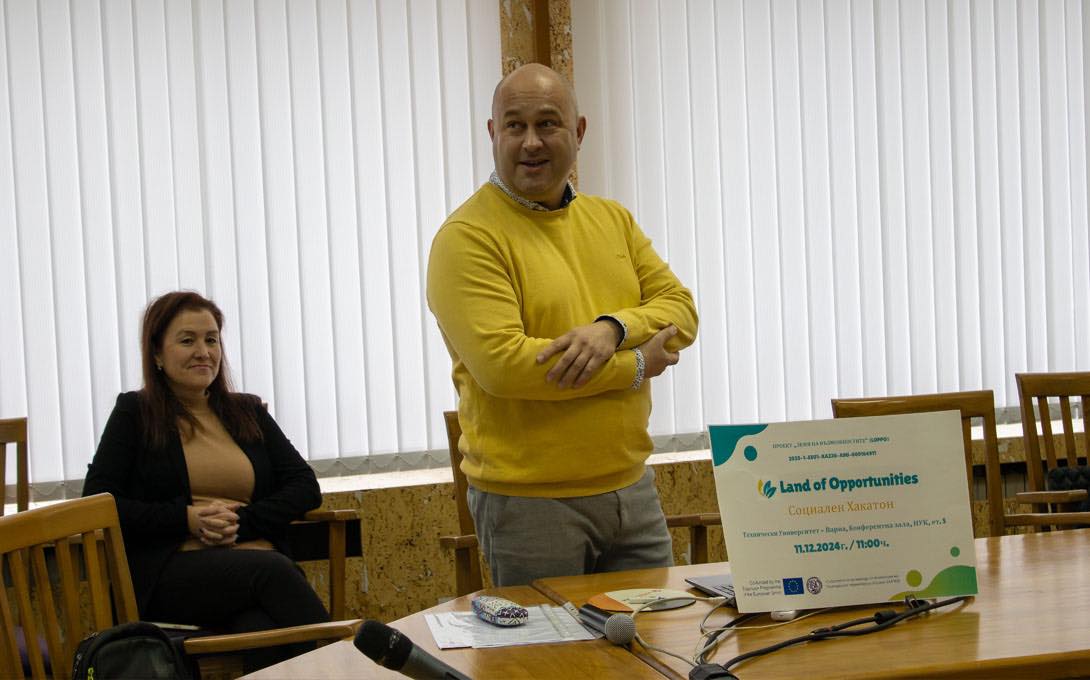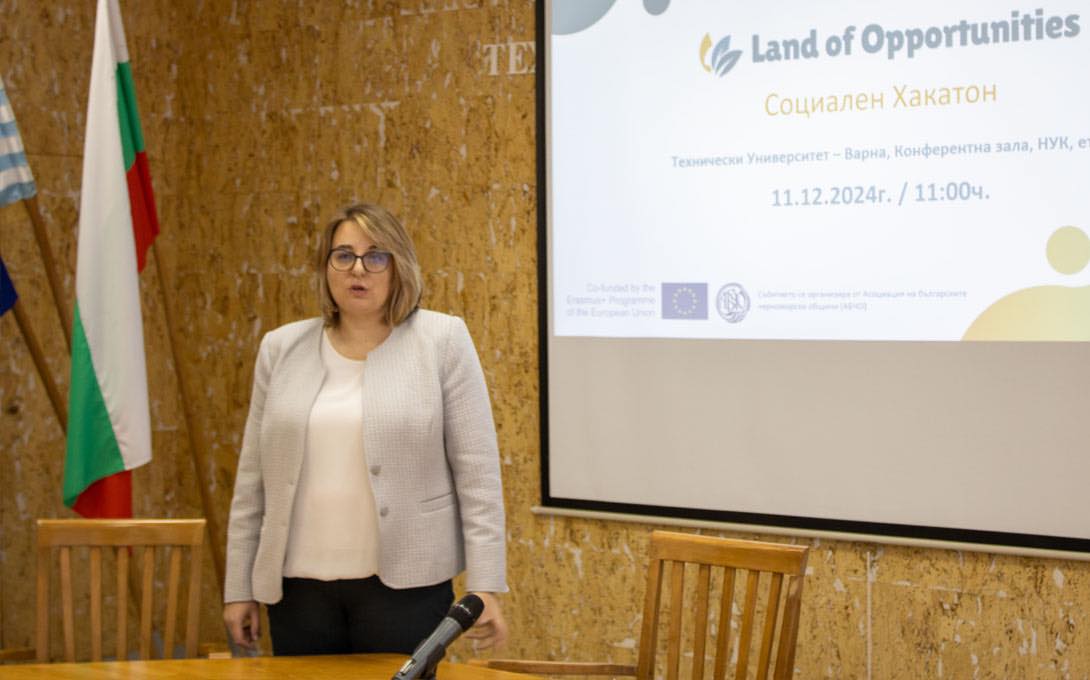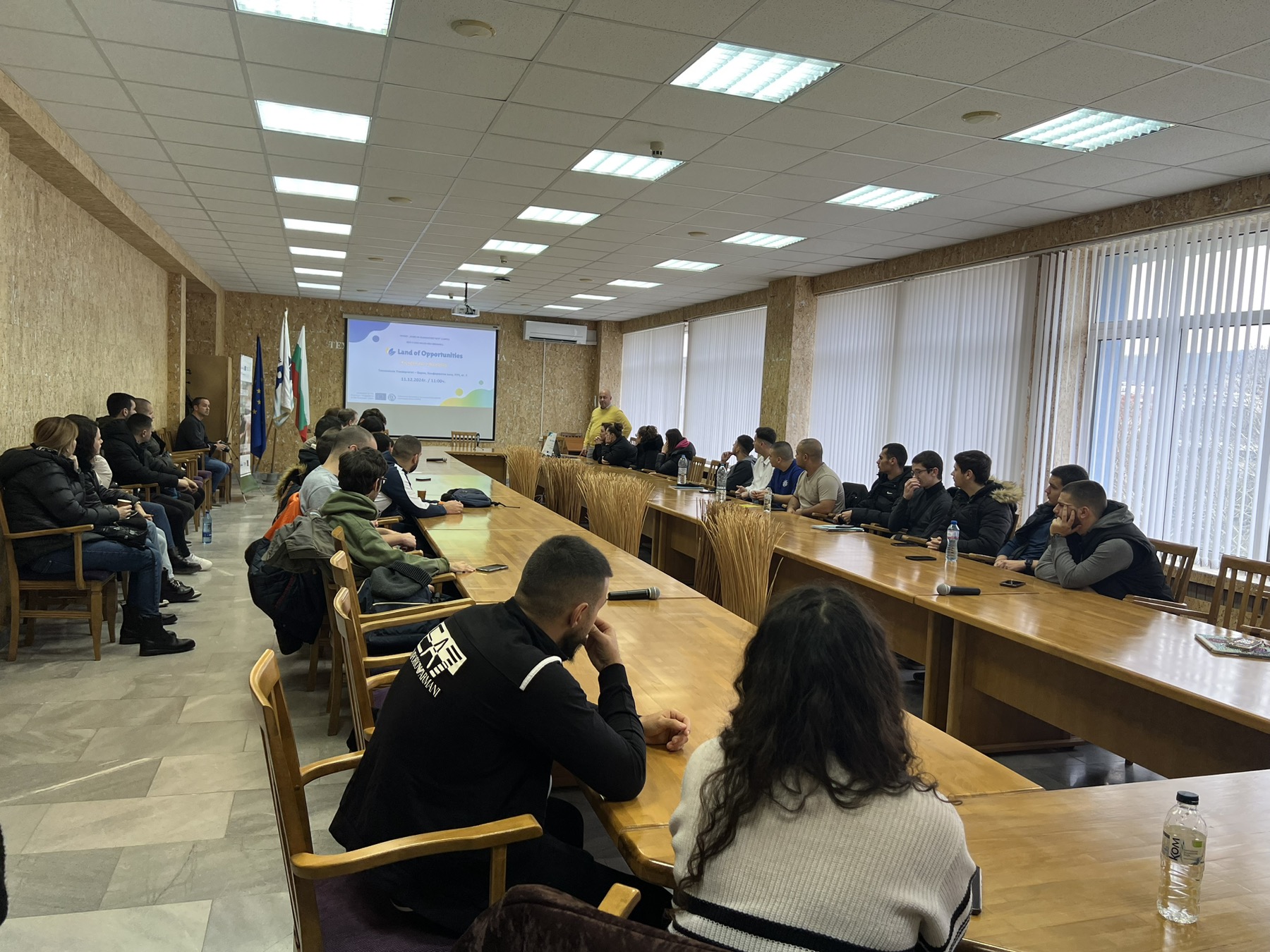during two social hackathons in Dobrich and Varna, the main problems and a set of applicable solutions tailored to the needs of small farmers in our country were identified
On December 11, 2024 a Social hackathon in the field of agriculture was held in the Conference Hall of the New Learning Corps (NUC) of the Technical University – Varna, organized by UBBSLA team with the support of the Department of Horticulture. The event brought together specialists, teachers and students from the agronomy majors in the department.
This is the second such event that UBBSLA organizes in implementation of the project “Land of Opportunities (LOPPO)”, which aims to promote job creation and economic development in rural areas, which in turn can contribute to reducing the gap between urban and rural areas in terms of employment opportunities and quality of life. The first event brought together interested farmers, hobby gardeners, plant growers, women entrepreneurs and young people from the Dobrich region and it was organized with the support of the Dobrich municipality in mid-October.
Agriculture is a vital sector that plays a crucial role in feeding the growing world population. The goal of the hackathons organized by UBBSLA was to focus participants’ attention on solving pressing problems facing farmers and agribusinesses, such as sustainable agriculture, water management and yield optimization. During the hackathons, a total of 60 participants had the opportunity to also discuss current issues related to the requirements for the certification of organic products and measures to preserve genetic resources in agriculture. Special attention was paid to Bulgaria’s Strategic Plan for Organic Agriculture 2023-2027 – requirements for certification of productions, interventions by types of sectors, organic crop production, as well as the importance of saving seeds for the preservation of biodiversity, agro-biodiversity, protection of ecosystems and climate protection.
During the two events, the training needs of participants in the field of agriculture, for youth and current farmers at an older age respectively, were identified, what conditions need to be improved in order for more youth and adults to develop an entrepreneurial mindset, what needs to be done in order to improve access to basic services in small population places mainly engaged in agriculture, etc.
As a result of the two hackathons, the main problems at the national/regional level and a set of applicable solutions tailored to the needs of small farmers were identified, such as:
- Relatively difficult access of small farmers to the end customer – currently direct access to the end customer is once a week on called “Farmers Markets”. The product offered there is organic (bio), which is why it has a very short shelf life and thus about 30% of the offered produce spoils. Solutions must be found for faster and consistent access to the end customer.
- Excessive administrative burden – in small farms the owner is responsible for almost all the necessary farm activities such as – cultivation, pest control, weather protection, watering, sales, maintenance, marketing etc. The farm workers are extremely busy with its maintenance. It turns out that they are subject to constant checks by various government authorities. As in some cases the inspections require too much time for the preparation of various documents by the farmers, thus abandoning the work on the farm. The administrative burden needs to be reduced.
- Small farms meet the requirements for organic production, but are not certified by an external body. The reason is that this service is prohibitively expensive. They need outside help.
- With the onset of climate change, farmers are also faced with new challenges in cultivating the land – drought, new pests, hail, etc. There is a need to increase knowledge and capacity to address these challenges.
- Small farms are limited by contacts with other similar farms in Europe. It is extremely interesting for them to visit such farms. It would be good to organize training seminars and visits of their colleagues from Europe.
- Relatively limited access to new seeds and varieties. Small farmers need to organize a training seminar on this topic.
- There is a weak culture of association between individual farms, which makes them weak in the free market. The problem is very old, over the years there have been attempts at unification, but with relatively little success. It is necessary to study the European experience in such associations and to try to create them. At this stage, this task seems very difficult.
The structured format of hackathons encouraged active participation and open dialogue, allowing participants to freely share ideas and generate collective solutions.





